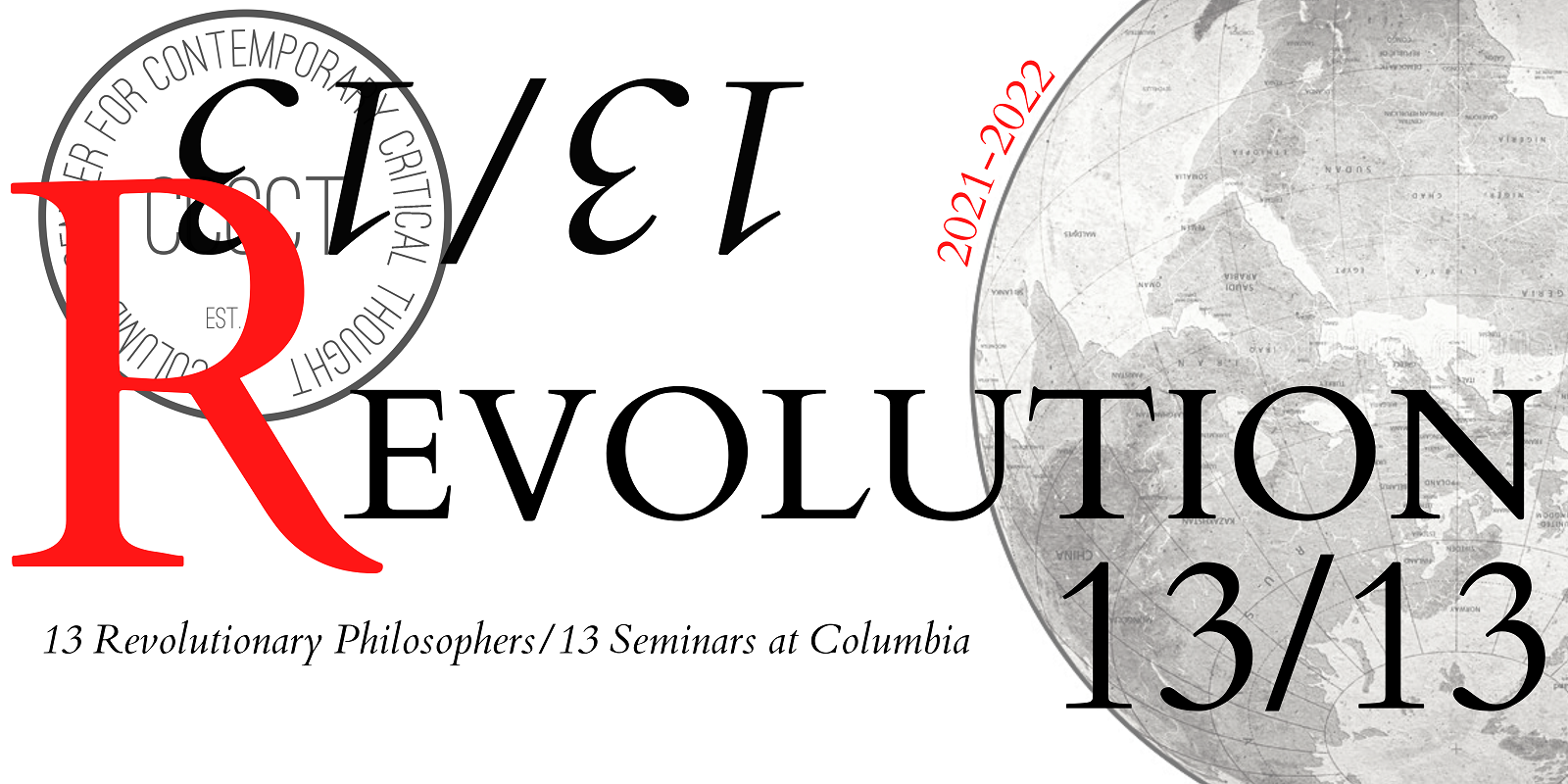Adom Getachew and Bernard E. Harcourt
read and discuss
Kwame Nkrumah’s Towards Colonial Freedom [1947], C.L.R. James’s Nkrumah and the Ghana Revolution [1958-1977], and George Padmore’s The Gold Coast Revolution [1953]
in conversation with
Alyssa Battistoni, Seyla Benhabib, Brent Hayes Edwards, Che Gossett, Karuna Mantena, and Sudipta Kaviraj
Wednesday, October 13, 2021
Columbia University
* * *
The man at the helm is the African intellectual. He succeeds—or independent Africa sinks… As in Russia after the 1917 revolution, it is the intellectuals who will lead the continent.
– C.L.R. James, Nkrumah and the Ghana Revolution.
As Adom Getachew demonstrates in her brilliant book, Worldmaking After Empire, the revolutionary movements for independence in Africa at mid-twentieth century were a high point for “critique and praxis”—a high point for a form of critical theory and action that was praxis-oriented and praxis-driven.
The anticolonial and anti-imperialist struggle, on the ground, was spearheaded, in large part, by what Biodun Jeyifo calls “worldly philosophers”: revolutionary actors thinking and acting in consort, actively in conversation and debate and disagreement with each other and other revolutionary actors around the globe, confronting theories of Marxism and communism, African socialism, even Stalinism, and studying closely the many experiments in liberation that were taking place around the world— or had taken place around the world, such as the Haitian Revolution during the 18th century, studied famously in C.L.R. James’s seminal book, The Black Jacobins: Toussaint L’Ouverture and the San Domingo Revolution.
The ambition of these worldly philosophers was to transform the world, not just create independent nations—and certainly not just diagnose the crises of imperialism. Their objective was to create a new international order and to serve as a beacon for world transformation. “On the millions of Africans,” C.L.R. James wrote in 1958, “hangs the real beginning of the history of humanity to which all that has hitherto taken place is only prehistory.” Theirs was an effort in what Adom Getachew calls “worldmaking”:
Decolonization understood as a revolutionary project thus required remaking the international order that sustained relations of dependence and domination. Nation-building was to be situated and realized through worldmaking.
C.L.R. James observes in his 1958 history of the Ghana Revolution—in a chapter titled, tellingly, “The Revolution in Theory,”—that the revolutionary movements in Africa were inextricably tied to critical intellectuals thinking, writing, and acting together, actively in conversation with each other. James traces the formative role of the African Bureau in London and of George Padmore (who set up the International African Bureau in 1935), of the fifth Pan-African Congress organized by W.E.B. Du Bois, Padmore, and Kwame Nkrumah and held in Manchester in 1945, of the debates and conversations between Nkrumah, Jomo Kenyatta, and others in London at the time, as well as C.L.R. James’s own contributions, especially his writing and publication of The Black Jacobins in 1938. All these mid-century interventions created heated controversy over interpretations of Marx and Lenin, Stalin and Trotsky, Du Bois and Marcus Garvey…
Last session, we discussed with Biodun Jeyifo at Revolution 1/13, the critical writings and the historical trajectory of the ideas and practices of Frantz Fanon, as well as Aimé Césaire, Léopold Senghor, James Baldwin, Richard Wright, among others, at the Paris, Rome, and Bandung conferences. We were focusing on the collective work of the many worldly philosophers who assembled for the International Conferences of Black Writers and Artists—all of whom were deeply involved in these critical exchanges and efforts at worldmaking mid-century.
In this session with Adom Getachew, we turn to the critical writings and praxis of Kwame Nkrumah, C.L.R. James, and George Padmore, among others. It is hard to imagine a more critical praxis-oriented group of thinkers and actors.
Welcome to Revolution 2/13!
[To read the introduction to Revolution 1/13, please continue to the post here]
